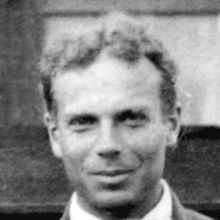Stanley Cobb
| Stanley Cobb | |
|---|---|

Stanley Cobb
|
|
| Born |
December 10, 1887 Brookline, Massachusetts |
| Died | February 25, 1968 (aged 80) Cambridge, Massachusetts |
| Education |
Johns Hopkins School of Medicine Harvard Medical School (M.D.) Harvard |
| Years active | 1925-1954 |
| Known for | Biological psychiatry |
| Medical career | |
| Profession | Neurologist |
| Institutions |
Massachusetts General Hospital Boston City Hospital Harvard Medical School |
| Research |
Neuroanatomy Neuropathology Convulsive disorders Somatic disorders |
| Notable prizes | Kober medal |
Stanley Cobb (December 10, 1887 – February 25, 1968) was a neurologist and could be considered "the founder of biological psychiatry in the United States".
Cobb was born on December 10, 1887 in Brookline, Massachusetts to John Candler Cobb. His great grandmother, Augusta Adams Cobb, abandoned her husband and married Mormon prophet Brigham Young as his third wife (out of some 56 wives) in 1843. Cobb's childhood and education were affected by his stammer, which it is suggested led him to study the neurosciences in an attempt to understand its cause. He married Elizabeth Mason Almy in 1915.
Cobb studied biology at Harvard College (AB, 1911), and medicine at Harvard Medical School (MD, 1914). After army service and a residency at Johns Hopkins Medical School, he was hired in 1919 to teach neurology at Harvard Medical School. In 1922, Cobb was asked to discover why patients with epilepsy had improved when they were starved. He recruited William Lennox as an assistant to investigate the ketogenic diet that had been proposed as being as effective as starvation in the treatment of epilepsy. In 1925 he was named Harvard's Bullard Professor of Neuropathology.
In 1930, he was appointed director of the newly opened Harvard Neurological Unit at Boston City Hospital. When Cobb moved to the Massachusetts General Hospital in 1934, he was succeeded by Tracey Putnam. Cobb built the department of psychiatry at the Massachusetts General Hospital. He championed psychoanalysis, giving it respectability when others in that conservative hospital disapproved. He published an annual review of neuropsychiatry in the Archive of Internal Medicine from 1935 to 1959.
When Carl Jung was invited in 1936 to receive an honorary degree by Harvard, he stayed with Cobb. Jung "put his shoes outside his bedroom door to have them shined. Cobb polished them".
...
Wikipedia
